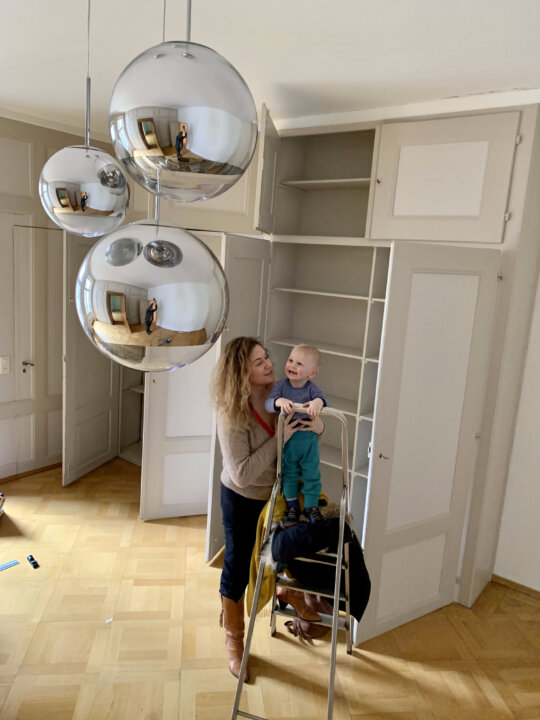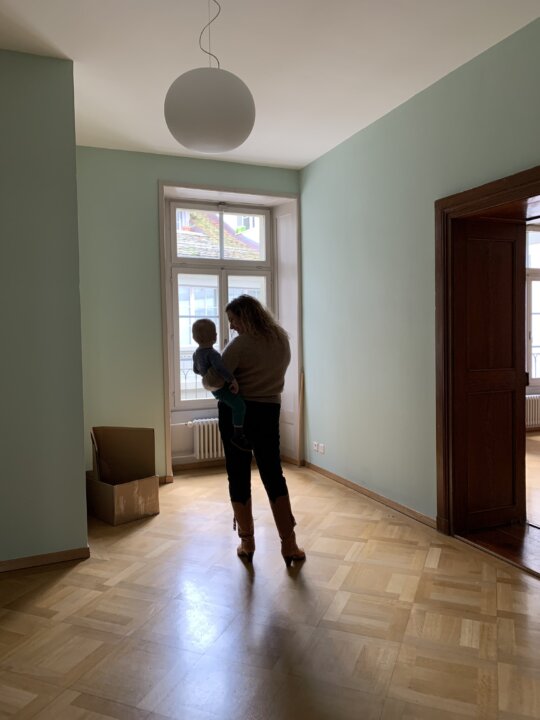







“Why are people so scared of moving house?” I wondered, as I sat at the kitchen table staring at the light of two flickering candles, cradling a cup of tea in my hands. “I’m not!” my husband responded from two rooms away. “Why not?” “Those who fear moving house lack intelligence,” he maintained. Just thinking about such a statement made my head spin. How callous, I thought. Outrageous! Insulting! GENERALISING! And, then I thought again.

We have all done it at some point in our lives. Moved house. The adventurers among us will move many times during their lifetime, proud of their ability to exercise adaptability. There are inadvertent passengers who find themselves being shooed on by impatient landlords or governments, some of them forever on the move and restless upon settling. Diametrically opposed are the home-birds among us who love routine and need a constant and unchanging framework to feel grounded.
We all move out of our comfort zone at that moment when we pass through the birth canal. And so, perhaps, begins a journey of unrest, of displacement, of searching for roots and meaning within the four walls (or the bodies) in which we reside. Some of us associate our personal or family history with our homes, either cherishing bricks and mortar or finding ourselves unable to remain one more minute in a space that reminds us of what was.
I recall reading in some magazine that the three top-rated, most difficult events for people in the Western world include the death of a loved one, separation from a loved one, and moving house.
Evolutionary biology suggests that nomads have the highest level of brain activity and use of brain power — forever on the lookout for predators near their latest makeshift home. This idea that a community trekking through the wild is the most intelligent amongst us, as they are in a constant state of astuteness and awareness, reminds me of every yogi’s mantra: live in the present moment. Neural plasticity, the ability for the brain to change through growth and reorganization is one that we know is available not just to young children but also to adults. Keeping the brain active, whether through willful exercise or due to exposure to an unknown environment, has significant impact on how the brain develops, how its memory functions, how we learn, how our nervous system functions; essentially, how we grow and how present we are.
Naturally, we like to think of ourselves as intelligent beings. So why do we abhor moving house so much?
For some, it’s the labour and planning involved in moving that disturbs their flow. Others genuinely don’t like where they’re going, or they find the timing of it to be all wrong. In some cases we fall on difficult times and downsize our lives in order to maintain our security. And why do I hate moving house so much?
Have you got all day to listen?

Perhaps the easiest way for me to boil it down is to acknowledge that I find the act of closing chapters to be difficult. Closing a chapter suggests that: a) there is something I need to digest before being able to move on, b) there is something to accept before being able to move on, c) there is something that requires taking action, an action that might push me to the limits of what I think I am capable of before being able to move on, or finally d) it means undoing the heavy-handed romanticism I build up around and in the cobwebs in the corners of my house and mind. It means I need to accept that both spaces need a bit of a cleaning.
Moving house is perhaps nothing more than a symbol for change in general. And we all know how much humans like change…
Change is challenging. Whether it’s a new job, a new apartment, a new relationship or a new fitness routine, all these things require a space where the feelings they ignite in us can be expressed, and the realisation that that space is not one made of bricks and mortar.
In music, that “change” can range from the act of sightreading, to the step classical musicians need to take outside of their comfort zone to, for example, improvise. Many classical musicians feel safe reading and interpreting a score. Left to their own compositional devices, however, many feel they aren’t contributing anything meaningful to the canon. Rather than be seen as making mistakes on their path of exploration, they prefer to stick to the corners of the repertoire they know. In this way, they find a reason to not expand their knowledge of music.
Change can also mean the courage to turn to their audience and speak to them during a concert, rather than relying on the voice of their instrument alone to transport the story they are telling. I remember encountering entirely new levels of nervousness when I first welcomed an audience to my festival. Seeing as it was my festival, I had to throw myself into the ring and rise to the challenge. It took me a number of years to move between being a musician and being a host and find a home somewhere between the two.
The biggest move will always be how we transform our mindset from one thinking pattern to another; how we transform negative emotions into positive energy; how we translate traumatic experiences into ones that give us hope and a sense of oneness within ourselves.
“Well, I am scared!” I called back to my fearless husband. “I find it hard to move!”
Having walked across the hallway, he came in with a twinkle in his eye, joined me at the table and said, “I didn’t say it wasn’t hard. I just said it requires intelligence.”